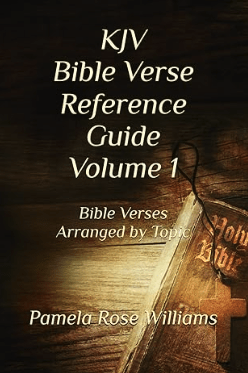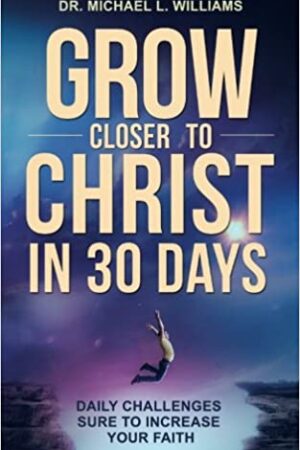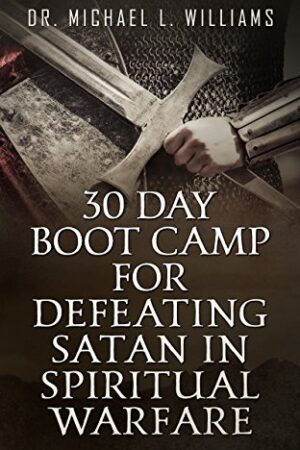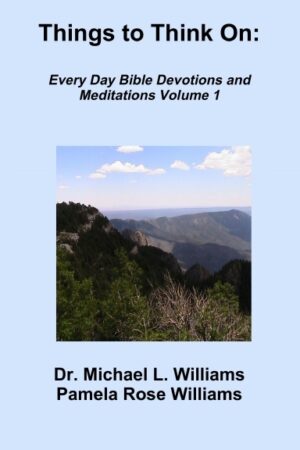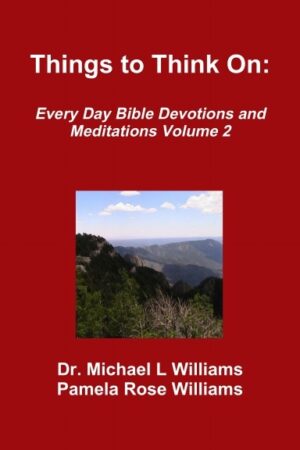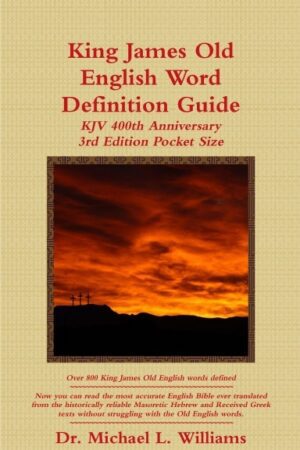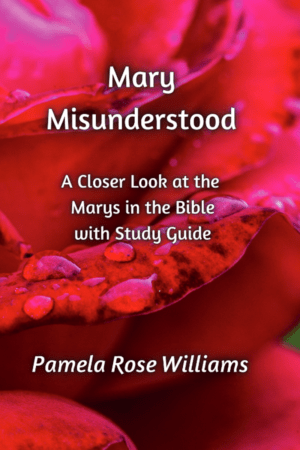Introduction
Many times, people will ask: How can you be sure that the Bible is true or hasn’t been changed? Depending on who is asking the question, the difficulty of providing an answer that they believe will vary. This is because the ability to fully understand the answer is based upon if they have trusted Jesus Christ as their Savior. If they have, only then can they know how to answer the all-important question: Can we trust that the Bible is accurate?
How did the words in the Bible get there?
The Bible is very clear about how the Words God spoke to man were written down and became Scripture. Jesus made a reference to this when he mentioned a conversation He previously had with the disciples on how the Scriptures about Him in the Old Testament would all be fulfilled.
Luke 24:44. “And he said unto them, These are the words which I spake unto you, while I was yet with you, that all things must be fulfilled, which were written in the law of Moses, and in the prophets, and in the psalms, concerning me.”
We see Jesus mentioned what was written in the law of Moses, the prophets, and the Psalms about Him. These areas of Scripture mentioned are divisions of the Old Testament that have historically been used by Orthodox Jews since they were first spoken and written. We can note here that Jesus did not include the Apocrypha: a text, that is full of errors, that was written during a silent period of about 400 years between the Old and New Testaments.
Jesus also made a descriptive reference about the order of specific events in the Old Testament while He was admonishing the scribes and Pharisees about their hypocrisy in Matthew 23:34-36:
Matthew 23:34–36. “Wherefore, behold, I send unto you prophets, and wise men, and scribes: and some of them ye shall kill and crucify; and some of them shall ye scourge in your synagogues, and persecute them from city to city: 35 That upon you may come all the righteous blood shed upon the earth, from the blood of righteous Abel unto the blood of Zacharias son of Barachias, whom ye slew between the temple and the altar. 36 Verily I say unto you, All these things shall come upon this generation.”
In this passage, Jesus mentioned murders that were written about in the Old Testament. The first one was Abel in Genesis 4:8 and the second one was Zacharias in 2 Chronicles 24:20-22. Although there were many more murders, In the Christian Bible, the Old Testament starts with Genesis and ends with Malachi. However, in the Hebrew Scriptures (Old Testament), Genesis is the first book, and 2nd Chronicles is the last book. With these words, Jesus stated for the record that the first murder was at the beginning of the Old Testament (Genesis) and the last murder was at the end of the Old Testament (2nd Chronicles) which tells us the order of the Old Testament books.
One thing to remember is that this was written in Matthew 23 in the New Testament of our Bible and there was a 400-year period of silence between the Old Testament and the New Testament. However, Jesus and His disciples were living in an Old Testament world. They had not yet been told how the shedding of His blood on the cross would bring about the New Testament. He taught it to them later at the Lord’s Supper the night He was betrayed:
Matthew 26:26–29. “And as they were eating, Jesus took bread, and blessed it, and brake it, and gave it to the disciples, and said, Take, eat; this is my body. And he took the cup, and gave thanks, and gave it to them, saying, Drink ye all of it; For this is my blood of the New Testament, which is shed for many for the remission of sins. But I say unto you, I will not drink henceforth of this fruit of the vine, until that day when I drink it new with you in my Father’s kingdom.”
How did the original writers of the Bible know what to write?
In the Old Testament we see over and over again where God told the authors what to write. From Moses in Genesis to Malachi in Malachi, God told the Old Testament writers directly what to write. For this reason, we learn that Jesus authorized the Old Testament Masoretic Hebrew scriptures that were accumulated and maintained by Jews. Jesus demonstrated this when quoting Scripture when He used the Words, “It is written” as seen when he responded to the temptations of Satan as follows:
Matthew 4:4. “But he answered and said, It is written, Man shall not live by bread alone, but by every word that proceedeth out of the mouth of God.”
Matthew 4:7. “Jesus said unto him, It is written again, Thou shalt not tempt the Lord thy God.”
Matthew 4:10. “Then saith Jesus unto him, Get thee hence, Satan: for it is written, Thou shalt worship the Lord thy God, and him only shalt thou serve.”
Jesus also endorsed “the law or the prophets” in their writing and maintaining of the Old Testament as follows:
Matthew 5:17-18. “Think not that I am come to destroy the law, or the prophets: I am not come to destroy, but to fulfil. 18 For verily I say unto you, Till heaven and earth pass, one jot or one tittle shall in no wise pass from the law, till all be fulfilled.”
Luke 24:27. “And beginning at Moses and all the prophets, he expounded unto them in all the scriptures the things concerning himself.”
Luke 24:44. “And he said unto them, These are the words which I spake unto you, while I was yet with you, that all things must be fulfilled, which were written in the law of Moses, and in the prophets, and in the psalms, concerning me.”
In the New Testament, Jesus told the disciples how the Comforter, or Holy Ghost, would be sent to them that love Him to bring to remembrance all of the things Jesus taught them and how that one day He would return.
John 14:23–26. “Jesus answered and said unto him, If a man love me, he will keep my words: and my Father will love him, and we will come unto him, and make our abode with him. He that loveth me not keepeth not my sayings: and the word which ye hear is not mine, but the Father’s which sent me. These things have I spoken unto you, being yet present with you. But the Comforter, which is the Holy Ghost, whom the Father will send in my name, he shall teach you all things, and bring all things to your remembrance, whatsoever I have said unto you.”
We also see that Jesus told the disciples that the Holy Ghost would teach them and later bring all things that happened to their memory as well as what He said to them. At the same time, we also cannot fully understand God’s Word unless we are saved and have the Holy Spirit in us like they did.
We can certainly see how after His crucifixion, the Holy Ghost brought these things to their minds. We can also understand how they would have seen it as the Lord speaking to them. We see a few examples confirming this later as follows:
1 Corinthians 2:9–16. “But as it is written, Eye hath not seen, nor ear heard, neither have entered into the heart of man, the things which God hath prepared for them that love him. But God hath revealed them unto us by his Spirit: for the Spirit searcheth all things, yea, the deep things of God. For what man knoweth the things of a man, save the spirit of man which is in him? even so the things of God knoweth no man, but the Spirit of God. Now we have received, not the spirit of the world, but the spirit which is of God; that we might know the things that are freely given to us of God. Which things also we speak, not in the words which man’s wisdom teacheth, but which the Holy Ghost teacheth; comparing spiritual things with spiritual. But the natural man receiveth not the things of the Spirit of God: for they are foolishness unto him: neither can he know them, because they are spiritually discerned. But he that is spiritual judgeth all things, yet he himself is judged of no man. For who hath known the mind of the Lord, that he may instruct him? But we have the mind of Christ.”
Hebrews 2:1-4. “Therefore we ought to give the more earnest heed to the things which we have heard, lest at any time we should let them slip. For if the word spoken by angels was stedfast, and every transgression and disobedience received a just recompence of reward; How shall we escape, if we neglect so great salvation; which at the first began to be spoken by the Lord, and was confirmed unto us by them that heard him; God also bearing them witness, both with signs and wonders, and with divers miracles, and gifts of the Holy Ghost, according to his own will?”
The wonderful thing is that this still happens today when we trust Christ as our Savior and receive His Holy Spirit, and then study the Bible. Later, we find that because of our faith, words we studied in the Bible suddenly come to mind and speak to us in our minds about situations we are experiencing without us even thinking about what Scriptures might apply. The Bible also tells us about this “revelation” in our minds, in Hebrews Chapter 11, beginning in Hebrews 11:1: “Now faith is the substance of things hoped for, the evidence of things not seen….”
Being empowered by a Holy Spirit enabled memory, the disciples wrote what became the New Testament. It was finished in 96 A.D. with the completion of the Book of Revelation by the Apostle John. Historically, we have extensive copies of those original scrolls. Likewise, we also find references outside the Scriptures like the famous Dead Sea scrolls; the book of Jewish historian Josephus; and untold other historical documents that are still being discovered that confirm all the scriptures written by 96 A.D.
How do we know the Scriptures written and copied are accurate?
In addition to the references mentioned, in those days there were men that were called scribes. They were writers that wrote down what they saw or were told. They also had the job of writing copies of documents or Scriptures that were already in existence. In addition, they kept records. If a scroll was showing signs of wear, a new copy was made ready to replace it as well as other copies.
If you study the writing processes of the Scribes, their work was highly controlled and audited. When it came to copying scripture, there were quality control processes that were so strict that even if minute errors were found, an entire scroll could be destroyed on the spot, and they would have to start over. While we can discuss the techniques used and where scrolls were stored, it is highly important that we understand that God promised He would preserve the Scriptures forever as follows:
Psalms 12:6-7. “The words of the LORD are pure words: As silver tried in a furnace of earth, purified seven times. Thou shalt keep them, O LORD, Thou shalt preserve them from this generation for ever.”
Psalms 78:1-7. Give ear, O my people, to my law: Incline your ears to the words of my mouth. I will open my mouth in a parable: I will utter dark sayings of old: Which we have heard and known, And our fathers have told us. We will not hide them from their children, Shewing to the generation to come The praises of the LORD, and his strength, And his wonderful works that he hath done. For he established a testimony in Jacob, And appointed a law in Israel, Which he commanded our fathers, That they should make them known to their children: That the generation to come might know them, even the children which should be born; Who should arise and declare them to their children: That they might set their hope in God, And not forget the works of God, But keep his commandments…”
Psalm 105:8. “He hath remembered his covenant for ever, The word which he commanded to a thousand generations.”
Psalms 119:89. “For ever, O LORD, Thy word is settled in heaven.”
Matthew 4:3–4. “And when the tempter came to him [Jesus], he said, If thou be the Son of God, command that these stones be made bread. But he answered and said, It is written, Man shall not live by bread alone, but by every word that proceedeth out of the mouth of God.”
Matthew 24:35. “Heaven and earth shall pass away, but my words shall not pass away.”
Ecclesiastes 3:14. “I know that, whatsoever God doeth, it shall be for ever: nothing can be put to it, nor any thing taken from it: and God doeth it, that men should fear before him.”
There are many more verses we could add here, but the important thing to understand is that God promised He would preserve His Words for us to be able to have for all time. As we will see shortly, there has also been a concerted effort to get people not to trust God’s Words. We see this is the goal of Satan as first seen in the Garden of Eden when he lied to Eve about what God said and why He said it as follows:
Genesis 3:1-6. “Now the serpent was more subtil than any beast of the field which the LORD God had made. And he said unto the woman, Yea, hath God said, Ye shall not eat of every tree of the garden? And the woman said unto the serpent, We may eat of the fruit of the trees of the garden: But of the fruit of the tree which is in the midst of the garden, God hath said, Ye shall not eat of it, neither shall ye touch it, lest ye die. And the serpent said unto the woman, Ye shall not surely die: For God doth know that in the day ye eat thereof, then your eyes shall be opened, and ye shall be as gods, knowing good and evil. And when the woman saw that the tree was good for food, and that it was pleasant to the eyes, and a tree to be desired to make one wise, she took of the fruit thereof, and did eat, and gave also unto her husband with her; and he did eat.”
The sad thing about this is that as Eve was being deceived, Adam was right there with her and not only let it happen, but he also ate the fruit! He did this despite being told directly by God before Eve was even created not to eat from this tree or he would die as follows:
Genesis 2:16–17. “And the LORD God commanded the man, saying, Of every tree of the garden thou mayest freely eat: But of the tree of the knowledge of good and evil, thou shalt not eat of it: for in the day that thou eatest thereof thou shalt surely die.”
So, while we can know that God has preserved his Word, we must be willing to do the due diligence to make sure we have a good Bible that is an accurate translation into our language. This requires that it uses the correct Hebrew and Greek manuscripts as the foundation for the translation and that we study it faithfully.
How were the Scriptures kept intact?
With the expansion of Christianity beyond Jerusalem starting in Acts 11:22 and later, copies of the original Hebrew and Greek manuscripts were eventually kept in Antioch, a Greek town on a river not far from the eastern shore of the Mediterranean. Antioch is where gentile believers in Jesus Christ were first called Christians (Acts 11:25-26) and trained as disciples and missionaries. They remained in the area even after the sacking of Jerusalem by the Romans in 70 A.D. Over time, the early church fathers continued to keep manuscripts secured.
Likewise, there were also copies kept in Alexandria, Egypt. However, we find that the one’s kept in Alexandria were not the same as the originals. Historically, these “Codex Sinaiticus” manuscripts were not created until centuries after the originals and are full errors, missing verses, and other false scripture books. These were written by “later aged” writers that did not know the Apostles but were presumed to be “Apostolic fathers” (those that studied under the Apostles) creating scrolls that were used and stored in Alexandria Egypt. We see this with the Coptic Church in Egypt and early Catholic theologians.
Years ago, while studying the Apostolic Fathers, I found an overwhelming number of changes, omissions, and additions when comparing the writings of the many that were considered to be original Apostolic Fathers. The original Apostolic Fathers were students under the apostles and their writings were very accurate and clear about what they believed and were taught. Years later, others who did not know the apostles or their students wrote texts that were deviations from the originals and the basis of many untrue Christian theologies and writings.
There were also many other “books” found in Egypt that were later deemed to be not Scriptural. Some of these are called “The lost books of the Bible.” They had bizarre names like 1st and 2nd Adam and Eve, the Gospel of Thomas, and many others. While some are entertaining, others are downright blasphemous. The Gospel of Thomas was one such blasphemous book that alleges Thomas was a twin brother of Jesus. Another book tells the story of Jesus’ childhood and how he got into an argument with another boy on a beach and miraculously struck him dead out of anger. Jesus was then said to have resurrected the boy when He got in trouble for it. We find that many of the theologians after the third century adopted these books to create their strange theologies and even cults.
Are any of these corrupted texts used by Christians today?
When you look at most modern translations today, they do not use the original texts. Instead, they use scrolls stored in Alexandria or other sources. Many of these sources were not even discovered until the 1800s by modern day Biblical archeologists. Today, many Bible publishers claim they are more accurate. If this were true, this means we had no true Bible until the mid 1800s!
Likewise, with the invention of copyright laws in recent history, new Bible versions must be different so the corrupted scrolls are translated differently now and cannot be trusted as deviations are embraced. Who would have thought that God’s Holy Word would be copyrighted to be exclusively sold? This is not a new idea; we see this was something Paul addressed as follows:
1 Corinthians 9:16–18. “For though I preach the gospel, I have nothing to glory of: for necessity is laid upon me; yea, woe is unto me, if I preach not the gospel! For if I do this thing willingly, I have a reward: but if against my will, a dispensation of the gospel is committed unto me. What is my reward then? Verily that, when I preach the gospel, I may make the gospel of Christ without charge, that I abuse not my power in the gospel.”
With all these changes we can see how the corruption of Scriptures is possible. When I first got saved, I used a certain Bible version and really liked its accuracy but started noticing contradictions and missing verses as I compared verses with other verses. After researching the Hebrew and Greek, reviewing several books, and studying Biblical Archeology about this, I discovered the cause. For this reason, I realized how important it is to know every word has been preserved.
How important is having a reliable Bible?
When it comes to studying God’s Word, we must make every effort to have a reliable Bible and know about the importance God places on us trusting and relying on His Word as follows:
Psalm 119:11. “Thy word have I hid in mine heart, that I might not sin against thee.”
Proverbs 30:5-6. “Every word of God is pure: he is a shield unto them that put their trust in him. [6] Add thou not unto his words, lest he reprove thee, and thou be found a liar.”
2 Timothy 2:15-16. “Study to shew thyself approved unto God, a workman that needeth not to be ashamed, rightly dividing the word of truth. But shun profane and vain babblings: for they will increase unto more ungodliness.”
2 Peter 1:16-21. “For we have not followed cunningly devised fables, when we made known unto you the power and coming of our Lord Jesus Christ, but were eyewitnesses of his majesty. For he received from God the Father honour and glory, when there came such a voice to him from the excellent glory, This is my beloved Son, in whom I am well pleased. And this voice which came from heaven we heard, when we were with him in the holy mount. We have also a more sure word of prophecy; whereunto ye do well that ye take heed, as unto a light that shineth in a dark place, until the day dawn, and the day star arise in your hearts: Knowing this first, that no prophecy of the scripture is of any private interpretation. For the prophecy came not in old time by the will of man: but holy men of God spake as they were moved by the Holy Ghost.”
Isaiah 28:9-14. “Whom shall he teach knowledge? and whom shall he make to understand doctrine? them that are weaned from the milk, and drawn from the breasts. For precept must be upon precept, precept upon precept; line upon line, line upon line; here a little, and there a little: For with stammering lips and another tongue will he speak to this people. To whom he said, This is the rest wherewith ye may cause the weary to rest; and this is the refreshing: yet they would not hear. But the word of the LORD was unto them precept upon precept, precept upon precept; line upon line, line upon line; here a little, and there a little; that they might go, and fall backward, and be broken, and snared, and taken. Wherefore hear the word of the LORD, ye scornful men, that rule this people which is in Jerusalem.”
When it comes to Bible study, one thing to note is that if you look at commentaries written before the discovery of corrupted manuscripts, like Matthew Henry and those before, you will see vast differences from the ones based on the newer scrolls. This makes it important that if you want to use a commentary or other references such as a concordance or language guide, that they are not based on corrupted Scriptures. We could spend hours on this, but the history and evidence are overwhelming, and several modern denominations are a result of it.
Final thoughts
In conclusion, if we have no belief that the Bible is inerrant, then we cannot trust it and its “testimonies” will be ignored. We must have faith that the words are preserved as inerrant. As we see in Matthew 5:18, we must rely on the source and the promise of preservation as follows:
Matthew 5:18-19. “For verily I say unto you, Till heaven and earth pass, one jot or one tittle shall in no wise pass from the law, till all be fulfilled. Whosoever therefore shall break one of these least commandments, and shall teach men so, he shall be called the least in the kingdom of heaven: but whosoever shall do and teach them, the same shall be called great in the kingdom of heaven.”
At the end of the day, let us remember that faith is the SUBSTANCE of things hoped for, the EVIDENCE of things not seen (Hebrews 11:1). So, while we can go through the exercise of providing proof, we have to also realize that faith is involved and that only by the power of the Holy Spirit received at salvation can anyone understand Scriptures to internally verify its truth in their own heart and mind.
May God bless us in our studies. Amen








